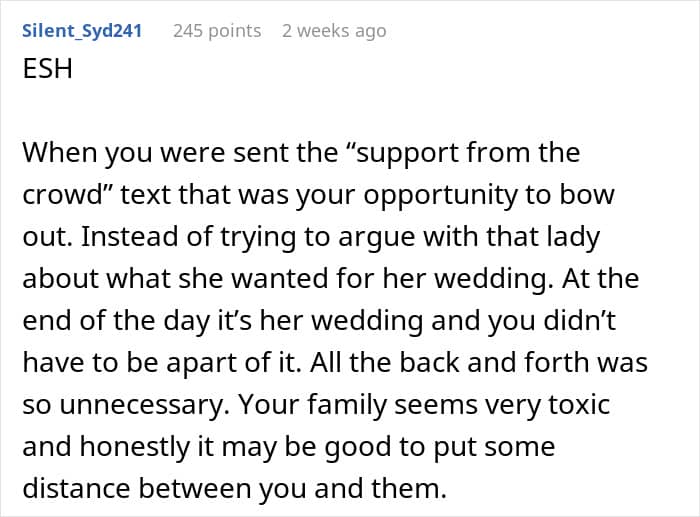Some folks have a very, very specific vision for their wedding. This is all well and good (if they can afford it) but oftentimes this vision starts to bleed into what even guests or, say, the bridal party have to look like. There is a pretty fine line between a consistent vision for a wedding and being downright controlling.
A bridesmaid asked if she was wrong to refuse to wear a wig to her brother’s wedding when the bride laid out a long list of demands. We reached out to the woman who shared the post via private message and will update the article when she gets back to us.
RELATED:Having a very specific vision for a wedding is nice in moderation

But one woman ended up getting into drama with the bride over a wig






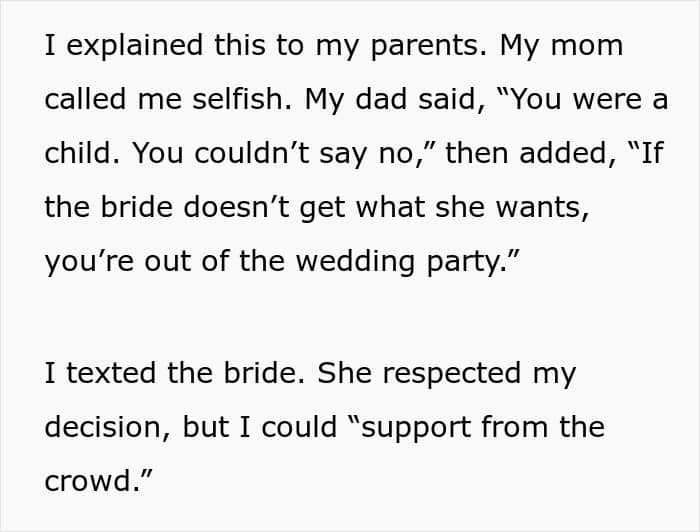
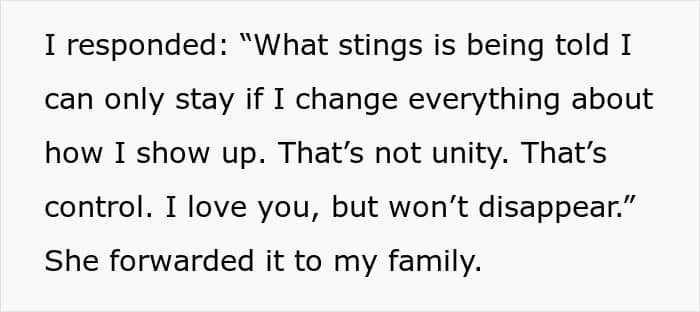

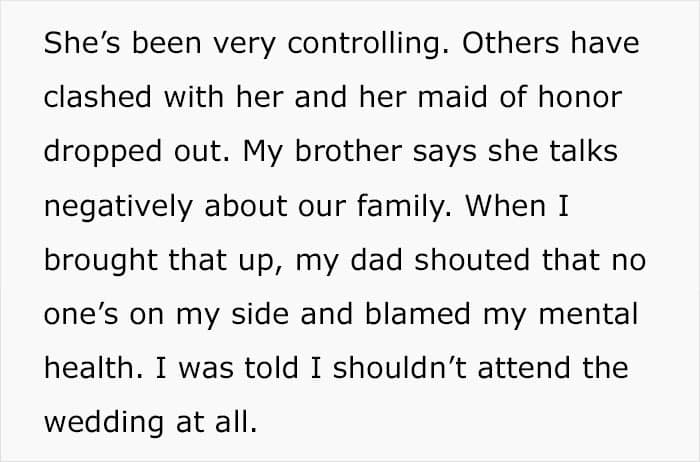





Later, she shared an update



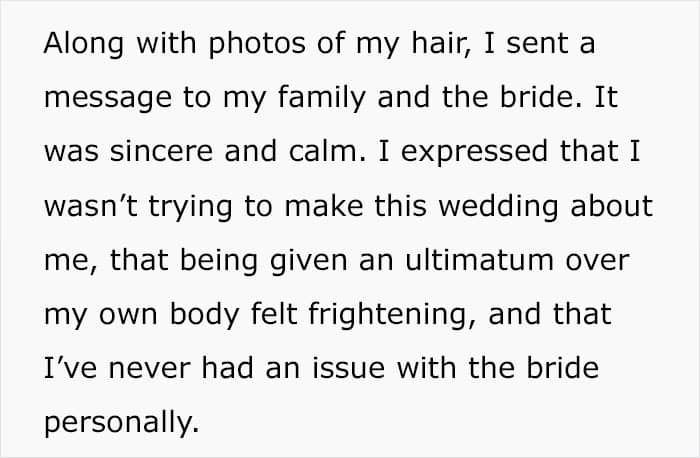


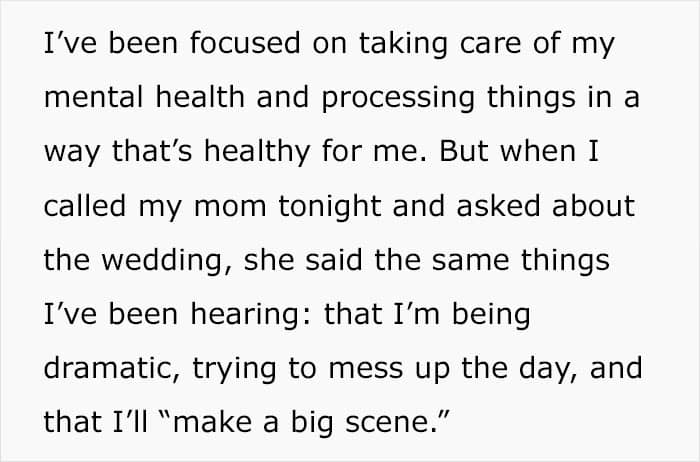

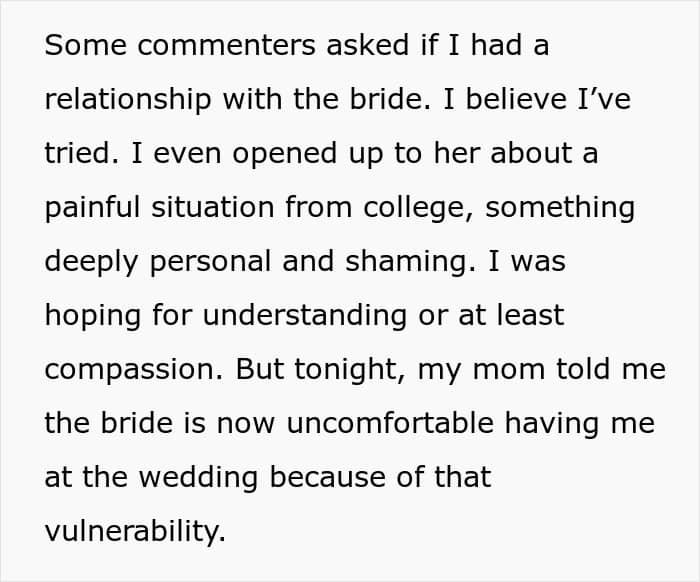

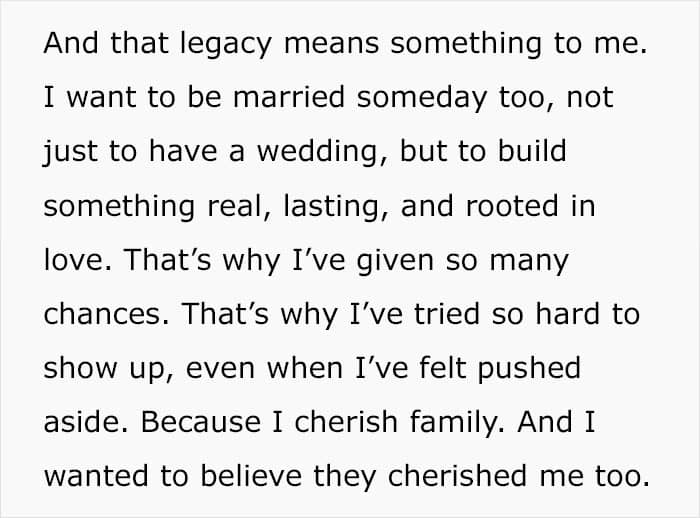
Without a firm plan, wedding expectations can shoot through the roof
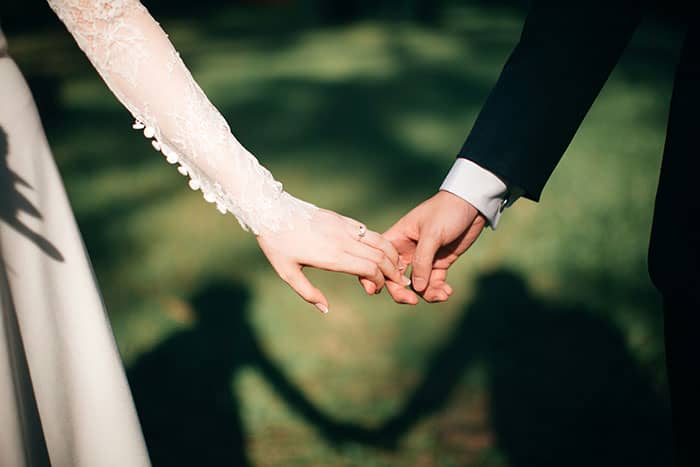
Weddings often begin with genuine excitement and a heartfelt desire to celebrate love, but somewhere between Pinterest boards, Instagram filters, and well-meaning family advice, some couples find themselves swept up in a tide of entitlement and control. What begins as an intimate vow can become a spectacle where guests are treated like props, budgets inflate, and even the smallest detail, napkin color or seating chart placement, becomes a battleground for perfection. To be clear, this isn’t always a 50/50 split, often enough, it’s one from the happy couple who is the creative director while the other just supports, or, even worse, doesn’t support.
Underlying all of this is social pressure. Couples are bombarded with so many visions of lavish ceremonies, ballroom entrances through cloud machines, cascading flower walls, choreographed dance routines, that they begin to feel that anything less is second-rate. Invitations become status symbols, guest lists balloon to include every distant relative for fear of offending them, and the fear of being considered “cheap” or “uncool” drives decisions far beyond what the couple would have otherwise considered.
Social media fuels the issue. Wedding hashtags, highlight reels, and live streams turn private milestones into public contests. The quest for the most “Instagrammable” moment invites meticulous control over every element: lighting, backdrop, even the precise moment vows are spoken. Spontaneity and emotional sincerity yield here to laborious scripting, and anyone who gets out of line, late vendors, chatty guests, or unruly children, can become the focus of stern correction. Case in point, the desire to have “uniform” bridesmaids might be so strong that actual conflicts like this one can arise.
Some families are practically enablers

Family expectations add another layer of complexity. Parents and in-laws who are contributing to the bills often demand creative input, and veto power, over important decisions. What was meant to be “theirs” in terms of seating charts, flowers, or even ceremony rituals becomes a power struggle: “If we’re paying, we get to decide.” Couples who are eager to avoid conflict or unhappy family members may capitulate, relinquishing control to keep the peace, only to have the day ruled more by obligation than by wish.
Entitlement creeps in when wedding planning turns into a battle of wills rather than a partnership. One partner insists on over-the-top upgrades as if entitled to them, while blaming the other for anything less than perfection. Vendors who attempt to suggest cost-cutting measures are brushed aside; guests who RSVP no are taken as personal affronts. Too often, couples forget that weddings, at their heart, are about community and support, and wind up treating the event as an all-or-nothing showcase of personal success.
Paradoxically, doing too much backfires. When weddings cross the line into dictatorial micromanagement, guests end up feeling forced rather than flattered. The stress level shoots through the ceiling, and what should be joyful memories become a blur of disasters, a collapsing frosting, an eleventh-hour seating debacle, a frigid band that won’t play. Amid all the chaos, the couple can lose each other in a vortex of logistics rather than love.
Ending this cycle requires a conscious shift in attitude: a recognition that social media likes and bragging rights to relatives aren’t a substitute for actual connection. The real magic lies in the moments that can’t be scripted, a tear-jerking glance exchanged during the processional, a rough-around-the-edges speech by a friend from childhood, the awkward beauty of an impromptu first dance. By steering away from entitlement and being open to flexibility, couples are able to make the wedding day about honoring their relationship, flaws, laughter, and all, rather than a manufactured event.
She also gave some more details in the comments
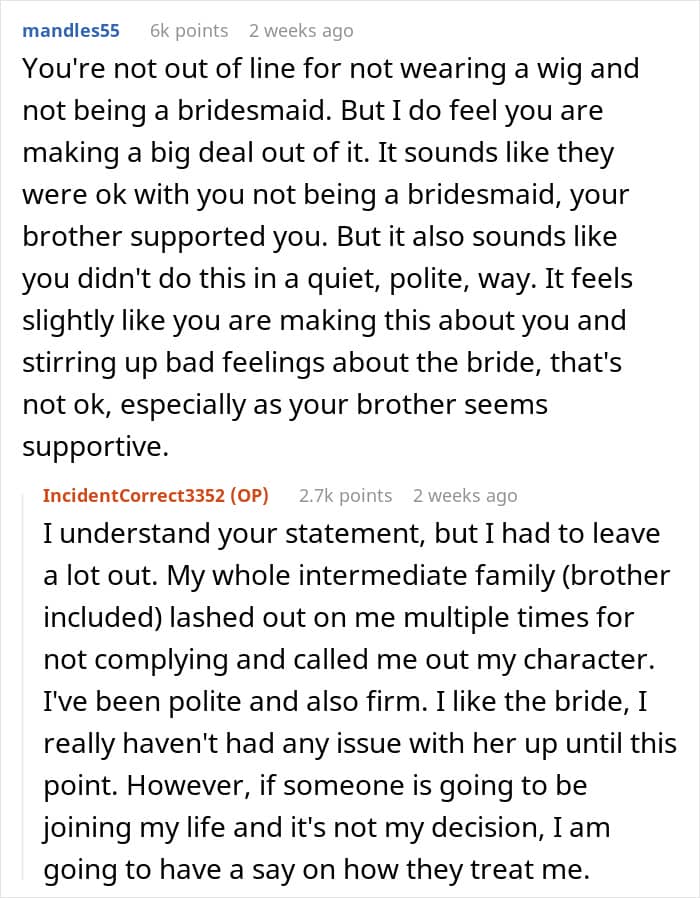

Many thought she was not overreacting


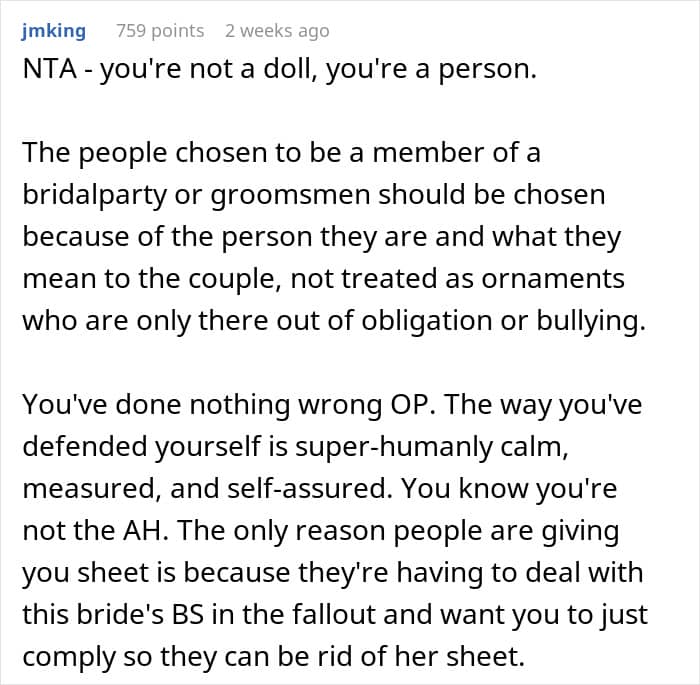
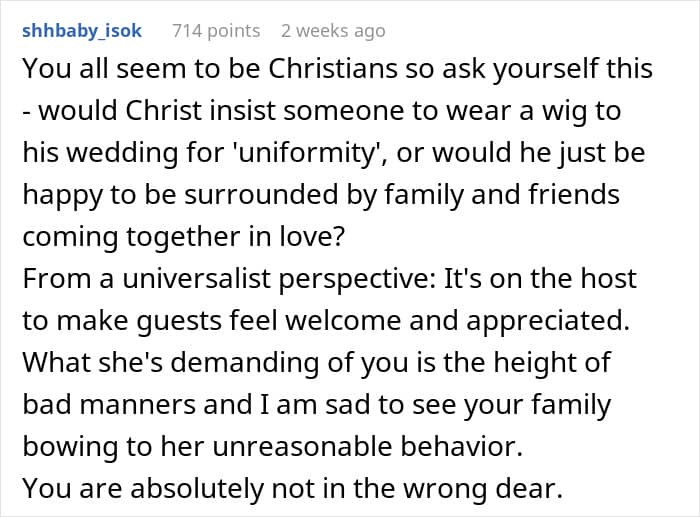






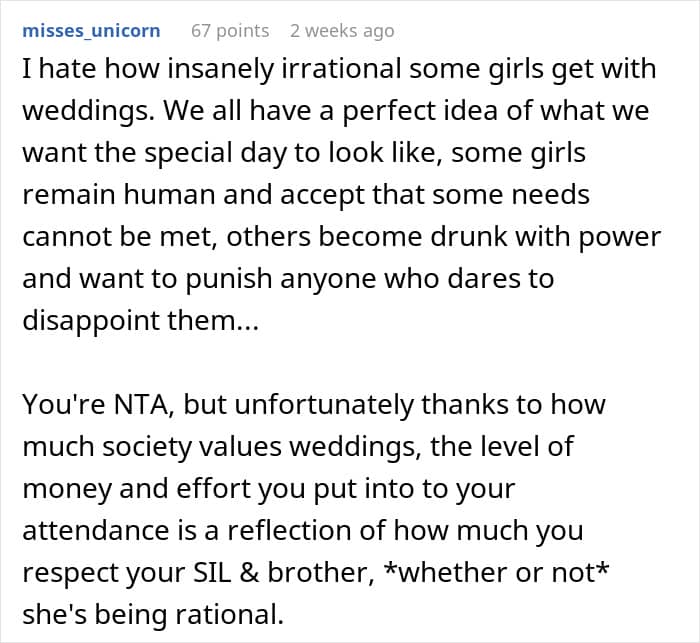






Some thought everyone could have handled things better

